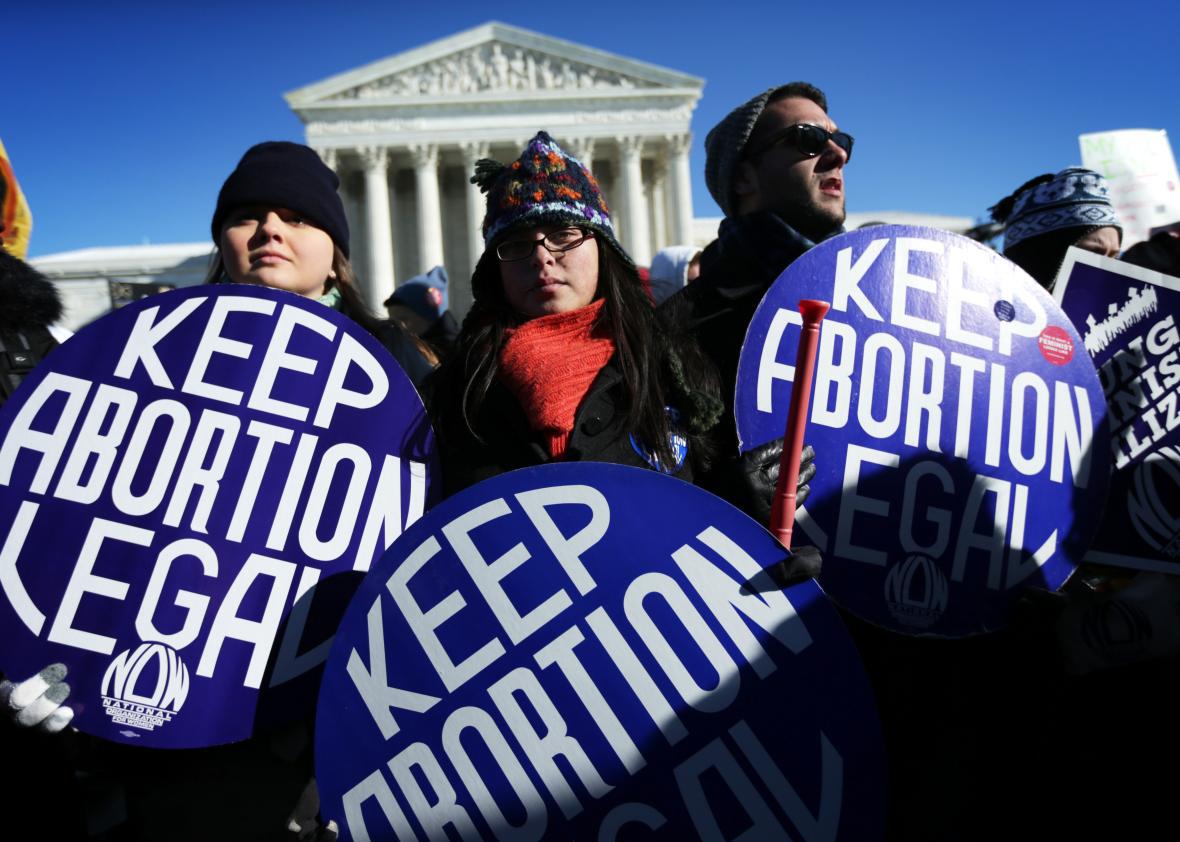Sixty-nine percent of Americans now oppose overturning Roe v. Wade, according to a Pew Research Center report published Tuesday. This marks a six-point increase in public support for the 1973 Supreme Court decision since Pew last asked about it in 2013. It is also the highest level of approval for Roe v. Wade that national pollsters have measured since Gallup began asking about it in 1989. The uptick in support for the ruling comes as Republican state legislators around the country introduce and pass bills violating women’s constitutional right to abortion and as the president-elect promises to appoint Supreme Court justices who will overturn the landmark decision.
In 1989, when Gallup started periodically tracking opinions on whether or not the ruling should be overturned, the percentage of people supporting the ruling came in at 61 percent, and it hovered around the low 60s until the mid-2000s, when Gallup changed the wording of its question. Pew got in on the Roe v. Wade polling game in 2003, and until this year, its findings also put national support in the low-to-mid 60s.
While the support for Roe has stayed mostly stable, the partisan gap has grown considerably. According to the new Pew poll, 84 percent of those who lean Democratic oppose overturning Roe v. Wade, compared to 66 percent in 1992. Just over half of people who lean Republican oppose overturning it, a negligible change from two decades ago. However, a majority of conservative Republicans support overturning the decision, according to the report. Some take the anti-abortion sentiment an extreme: In December, almost 40 percent of Trump supporters said they favored punishing women who get abortions if the procedure gets banned.
Since the election, anti-abortion elected officials have made it clear that Roe v. Wade’s popularity won’t stop them from trying to circumvent and overturn it. Donald Trump has promised to appoint “pro-life” judges to the Supreme Court, saying women can “go to another state” if Roe is overturned. Meanwhile, individual states like Ohio and Texas have passed laws that aim to limit access to abortions, even though the Supreme Court ruled last year in Whole Woman’s Health v. Hellerstedt that states cannot restrict abortion without a valid medical rationale. The latest Pew poll only highlights the gap between conservative lawmakers’ agenda and mainstream American sentiment on abortion.
